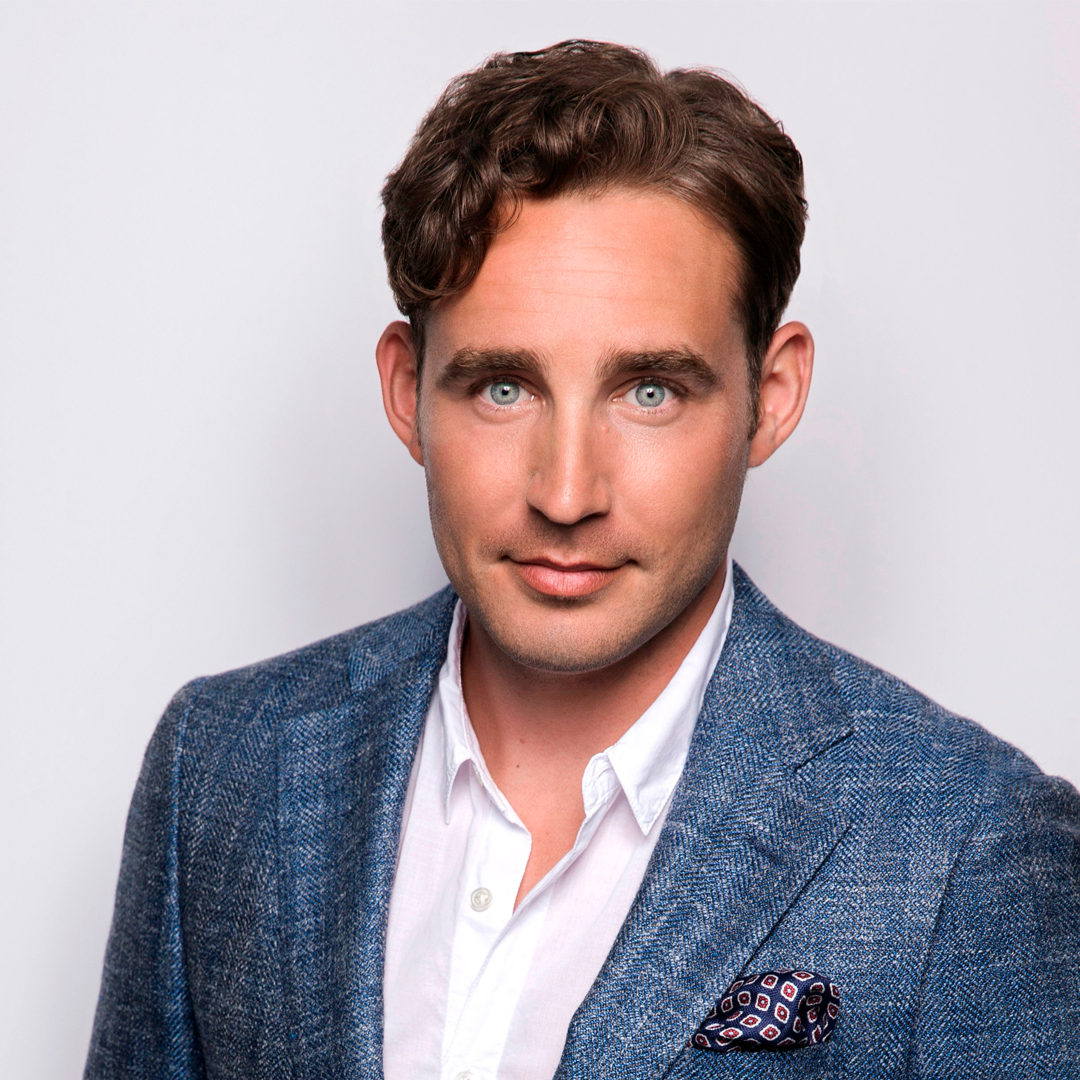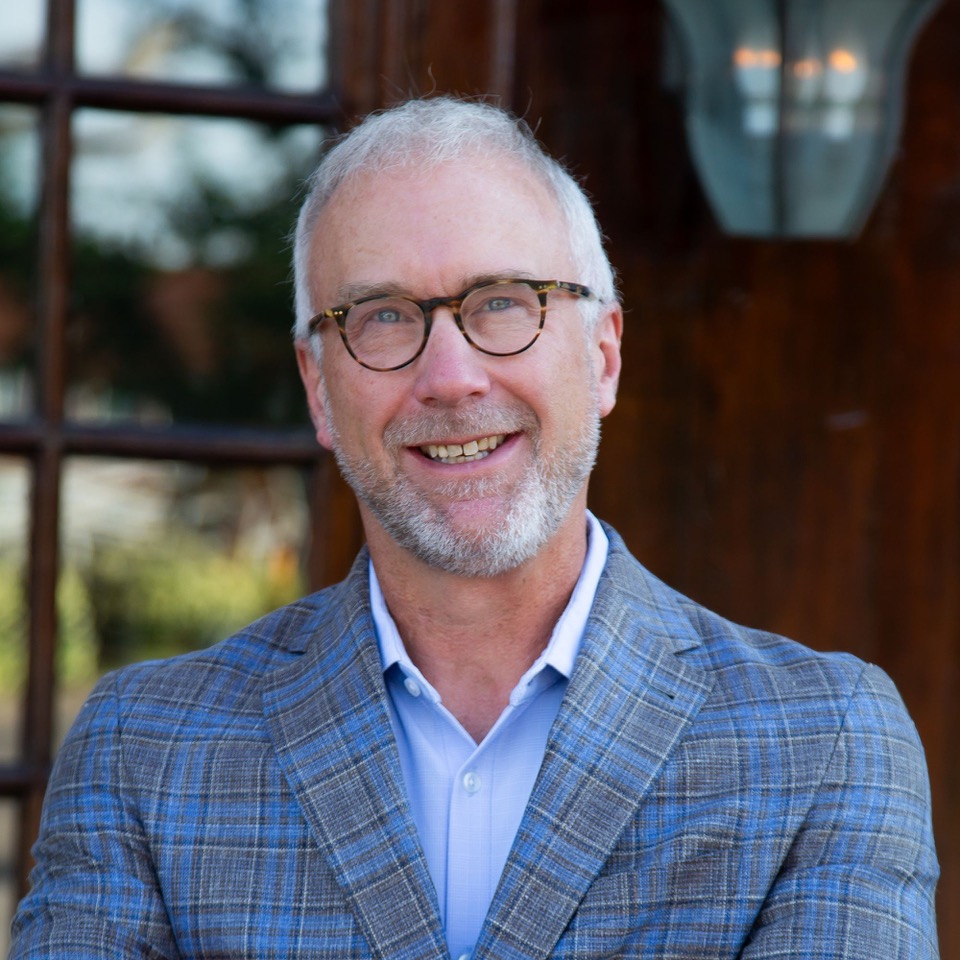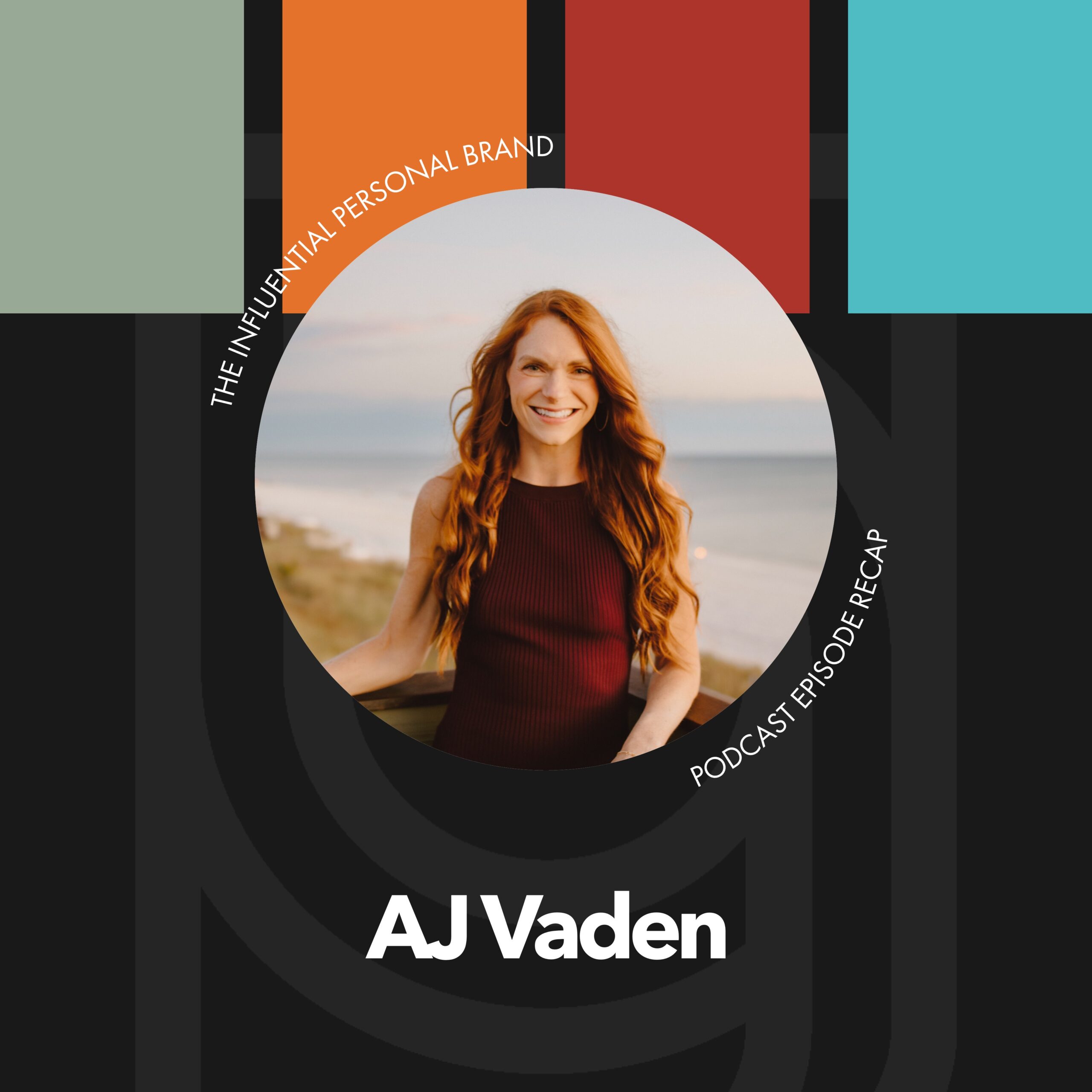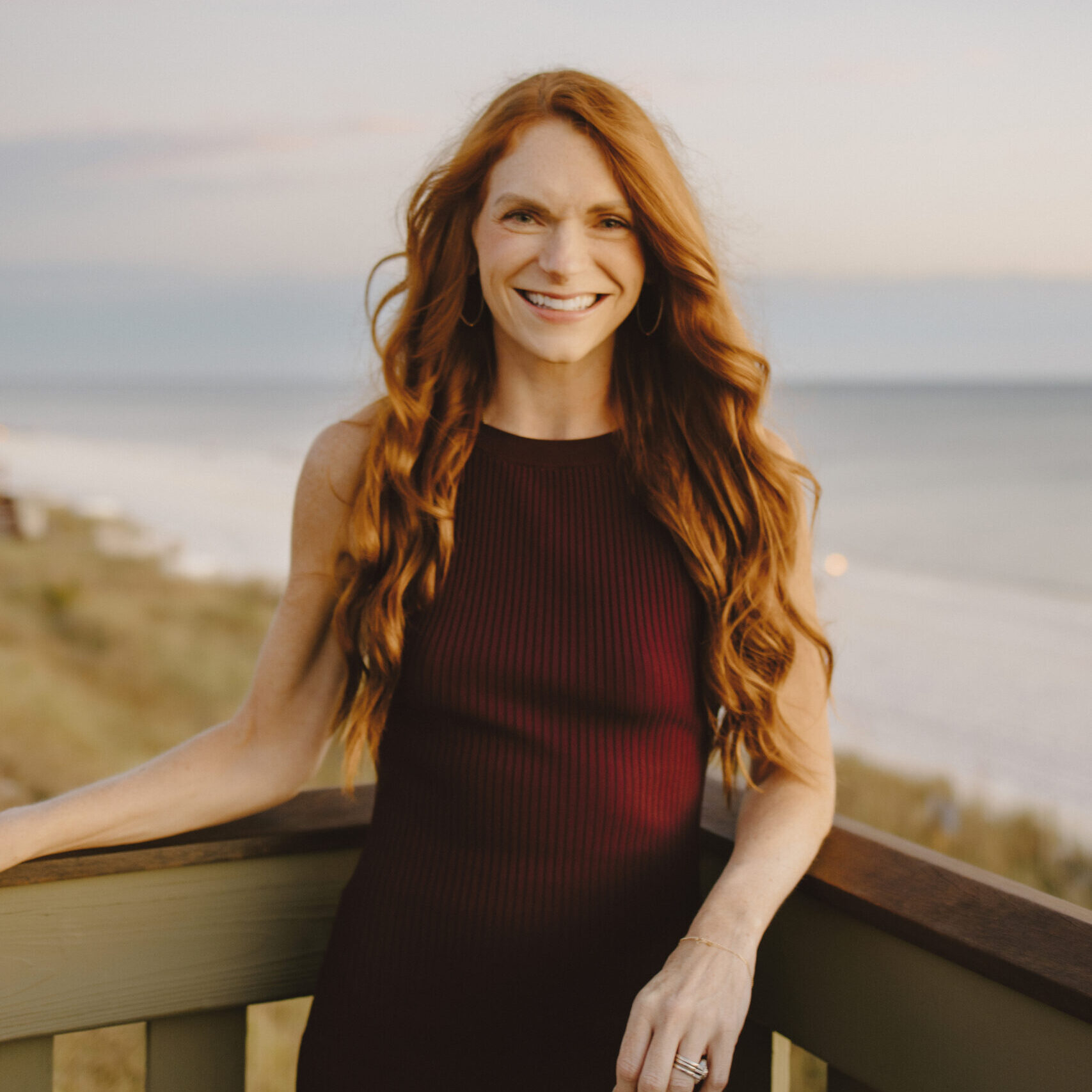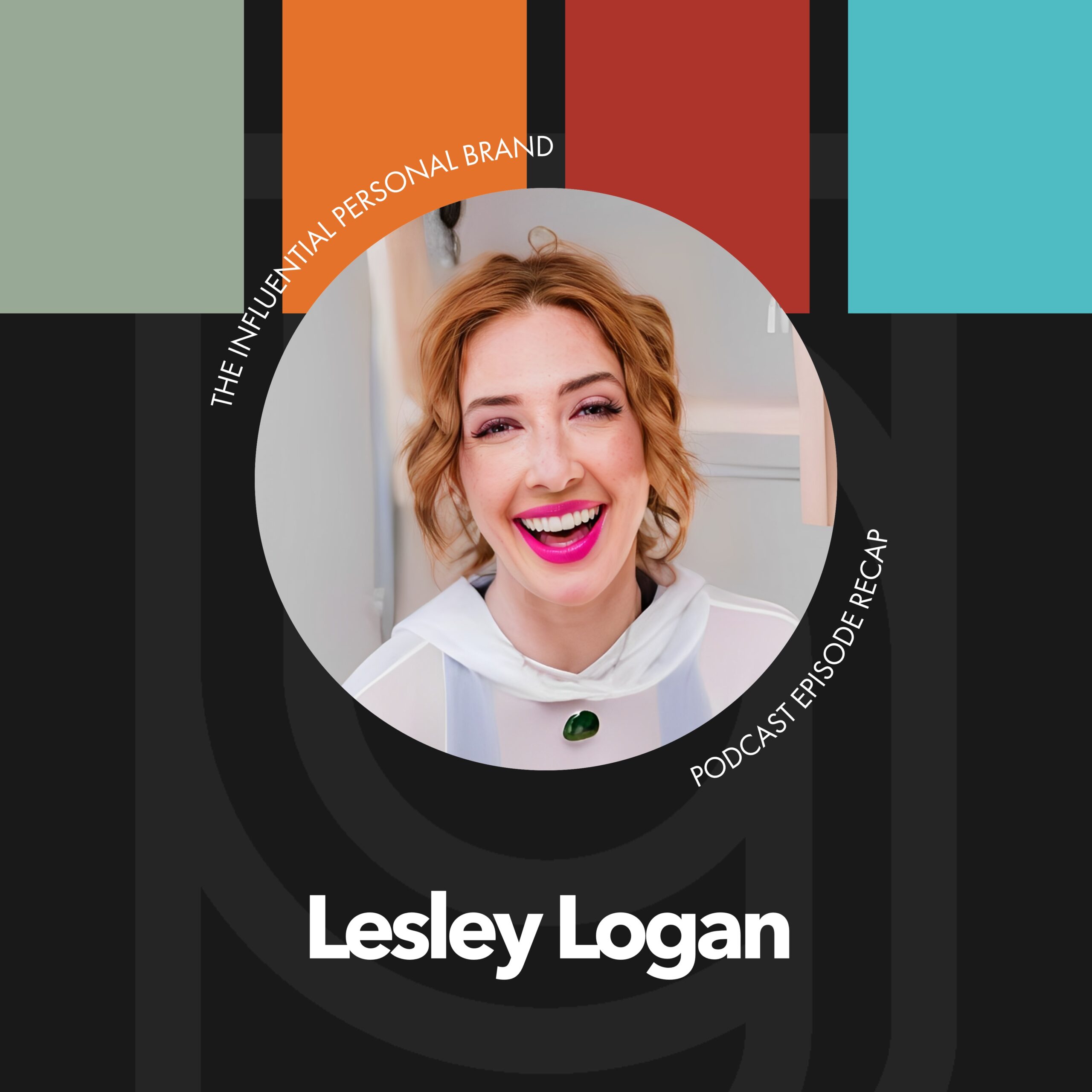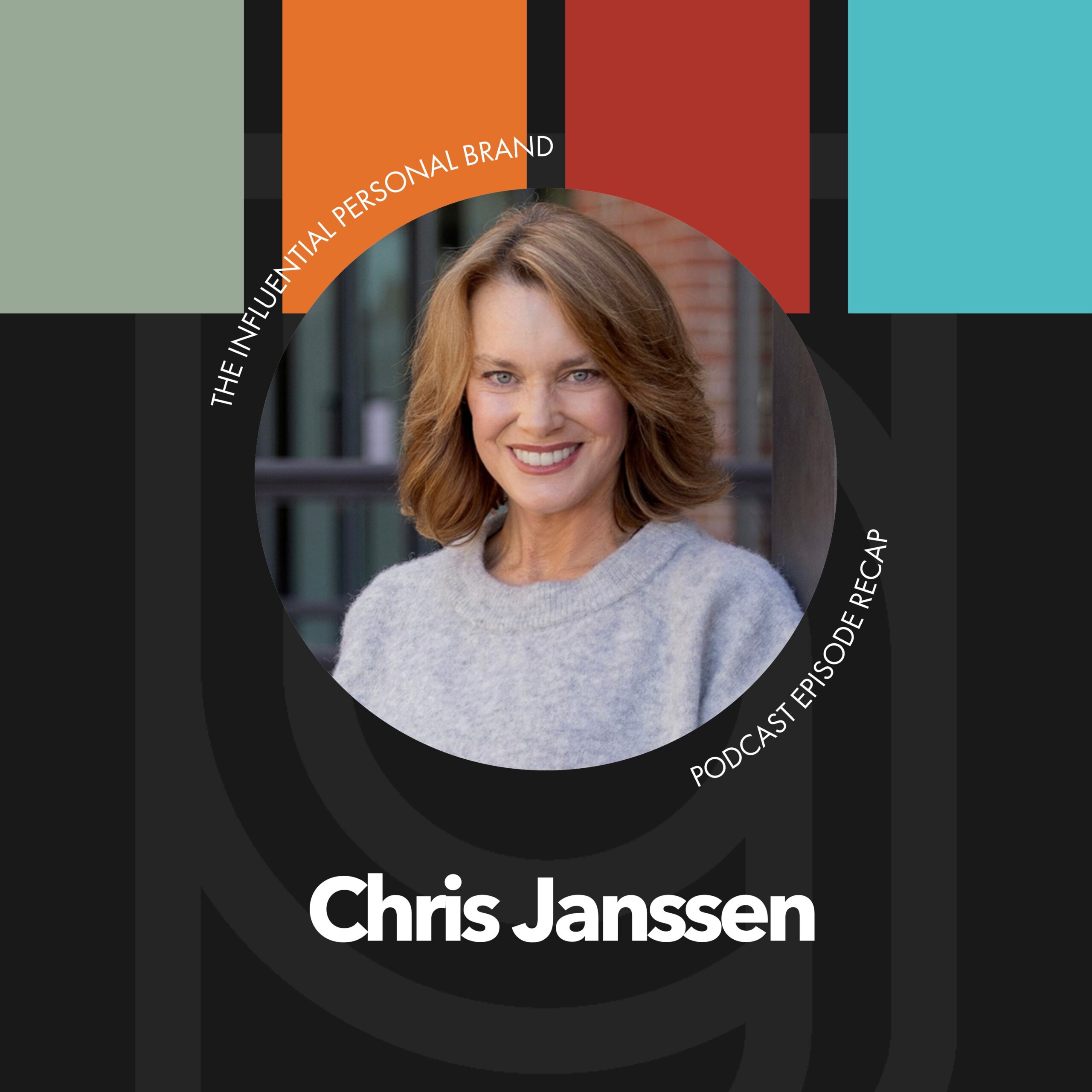Speaker 1: (00:07)
Hey brand builder Rory Vaden here. Thank you so much for tuning in to listen to this interview. We are so excited to bring you this information and wanted to let you know that, Hey, there’s no sales pitch coming. Ufrom anything that we do with this is all our value add to you and the community. However, if you are somebody who is looking for specific strategies on how to build and monetize your personal brand, we would love to talk to you and we offer a free call to everyone that’s interested in getting to know us and is willing to give us a chance to get to know them and share a little bit about what we do. So if you’re interested in taking us up on a free strategy call, you can do that at brand builders, group.com/summit. Call brand builders, group.com/summit. Call. Hope to talk to you soon on with the show.
RV: (01:04)
Sales is something that I love. It’s something that I spent my life doing knocking on doors as a teenager in direct sales, of course my mom was in direct sales and the first company, if you don’t already know this, the company that AIJ and I built was an eight figure sales coaching company. We coach salespeople how to sell after 2018, when we left that business, we’re no longer in the sales training business. And over the last couple of years, I have started following a gentlemen that you’re about to meet named Phil M Jones. Phil is one of my favorite experts in the world of sales in the world right now. He is the author of several different books, but the three kind of, I guess, flagship books are called exactly what to say exactly how to sell and exactly where to start.
RV: (02:05)
He has sold close to a million over over 750,000 copies of these books. And so he serves as both a resident expert on building a personal brand, and we’re going to talk to him about how has he built his own brand and sold so many books. But also we’re going to apply his expertise to the process of how to sell for personal brands. Because Phil sells consulting, he sells keynotes and he teaches organizations like Microsoft, Virgin, Atlantic pampered, chef DHL Volkswagen, ADT, Isogenics he teaches companies like that and those people how to sell. And so since we became friends recently, I was like, buddy, I need to get some free sales training for all of our peeps on the podcast. And he agreed. So welcome to the show, Phil.
PMJ: (02:59)
Hey, it’s a pleasure To be here, always good to chat. And hopefully we can share some things today that are useful to our listeners.
RV: (03:05)
Yeah, buddy. You know, I I know that you and I, you, we’ve only, we’ve only really, I think had one encounter where you and I are in this kind of non-paid mastermind of off a group of authors. And that’s where he mad. Of course we share Jay Baer as a mentor. I think he’s a mentor to both of us in a very dear friend, but you know, at brand builders, our audience is what we call mission-driven messengers. So we’re after people who are more about making impact you know, it’s not that they don’t want to make money, but what I’m, what I love about the stuff that you teach is it feels like it’s less ego. It’s less, it’s not about lies. It’s not about manipulation. So how do you think of sales? Like what, like when you think of just the word selling, how would you describe it? What do you think about it? Cause obviously your philosophies are resonating deeply with the world in terms of the way you think of selling.
PMJ: (04:10)
Okay. So how do I think about selling? Well, Phil Jones dictionary definition of what selling is, is, is firstly earning the right to make a recommendation. So, but break that down real simple. And it means you should never, ever, ever, ever, ever, ever, ever suggest to anybody that they should buy anything. Unless you can say these words first and the word you should look to say, first of the words, because of the fact that you said, because of the fact that you said blank, blank, and blank, then for those reasons, my recommendation would be blank, blank, and blank. Like that’s how you earn the right to make a recommendation. If you do the work before the work, it’s putting yourself in the position that this is the ultimate solution to other things I think about from a sales point of view.
RV: (04:52)
So just on that, that, that, that, to that, to me, that tees up listening, right? Like in order for me to be able to say, because of the fact that you said it means that I must have first asked questions, correct?
PMJ: (05:06)
The answer to suggesting that if you have not done the work to get into a position where you can say that, then you haven’t done the sales job, right. Too many people think it’s about embellishing, a product or service with features and benefits. Hoping one of them might stick. What you’re better to be able to do is to uncover true needs analysis, to see if there’s a genuine fit and then move yourself into a marketplace at one, there’s another ingredient though, that goes into being great on the ethical side of sales. And it’s understanding your job description and your job description is really one of being a professional mind to make her other people think no is the enemy of yes. Yet in the world of sales, indecision is the enemy not, no is people stuck in maybe. And if you can find ways of being able to actually move more of the right people who were stuck in, maybe choose you as opposed to somebody like you, or to choose you as opposed to choosing to do nothing. Then that’s where you get the ability to be able to fast track your success. So we are either decision catalysts or professional mind maker offers.
RV: (06:12)
I love that. I mean, that’s a total reframing of just what the enemy is and the real part part, you know, that reminds me of like, you know, so my first book take the stairs. People often ask, well, you know, which, which was overcoming the psychology of procrastination and helping people be disciplined in all areas of their life. And, and people said, what’s the connection of that between sales? Like, why do you have this company about the teacher’s sales training in your book is about helping people be more disciplined to take, because I said, well, it’s the same problem of inaction. It’s getting someone to take action. And in a sales conversation, I love that. It’s like, it’s not that they’ll tell you no, it’s that they won’t tell you anything. They won’t make a decision. They just, you live stuck in this world of maybe which takes a lot of pressure off of you as a sales person. I feel like, like, if, if, if, if knows the enemy, it feels like in order for me to win, I have to get them to say yes, but if they say no, then I lost and they won. But if indecision is the enemy, it’s like, we can both win.
PMJ: (07:16)
Right? And if you can help people make smart decisions that are mutually beneficial over the test of time, like people talk about great salespeople as being able to sell sand to Arabs or ice to Eskimos or any of these cliche sales sayings that have sat around for 30, 40, 50 years is that doesn’t wash in today’s as well. You sell somebody, something they don’t need that they already have in abundance. So they have no useful purpose for off to the transactions involved. And you, my friends are a crook, right? Like that, that is what exists there. What we’re looking to be able to do is to create mutually agreeable outcomes that go on to me, that your promise outperforms, the expectation that was delivered at the time, the promise was made yet still. We want them to choose you for that promise and not somebody else.
RV: (08:03)
So how do you, you know, like I think a lot of people that are listening, there’s a lot of technical training to sales. That’s, you know, we’ve spent a lot of time with teaching people. I mean, and that’s another reason why I love what you do is literally you teach people exactly what to say. There’s a, there’s an extraordinary sales as a technical skillset is a whole world of study. But I find that most of the people who struggle with sales, it’s more of the mental part that they can’t get their mind wrapped around. It’s like, I don’t want to be the slimy, whatever car sales man or, or pushy sales person. So how do we get our mind wrapped around this idea that in order for me to monetize my personal brand, I have to learn how to sell. Even though my initial response is like, eh, I don’t want to be a salesperson. Like, what’s the mental part of that
PMJ: (09:01)
When you’ve been around salespeople, that chunk right, is just type that, that stereotypical sales person I’m going to reverse the interview for a second. And I want you to throw some adjectives at me that would describe a stereotypical salesperson.
RV: (09:16)
Yeah. So pushy, manipulative, dishonest, disingenuous over promising over exaggerative like, I don’t know [inaudible], but if it is a word
PMJ: (09:31)
And we have to make out words to talk about made up people, right? So here we are. In that situation, you are seeing a very clear vivid image of somebody in your home. And everybody listening in is jumping to their version of that same name. What if I now ask you to read your mind and not those that describe a stereotypical salesperson, but instead attic teams that would be used to describe a professional sentence? What words would we got there?
RV: (09:57)
Well, it’s interesting, you know, if, if you took out, if you just said professional, like if you drop the salesperson, if you just said professional on purpose. Okay. So if I thought a professional salesperson, I don’t know. I mean, I, when I think of the word professional, I think of like educated, articulate, intelligent, you know, I think of like doctors, lawyers, CPAs, but, but I still, if you add Salesforce and I still think of like, you know, still a little bit overly persuasive, a little bit, it’s more just like sly and how they’re, you know, kind of influencing. But, but the word professional makes me think of an advisor of like like like I go to my doctor for answers because they’re an expert. That’s how I think of just the word professional by itself.
PMJ: (10:50)
Right. And I think even in that one example, I changed one word and you changed all the words you saw a different picture. When you thought about a professional sales person, first is a stereotypical salesperson. And that’s part of the starting point is we have to decide that we are not the devil like that has to be that we understand that that exists in a percentage of the way that people sell yet. That doesn’t have to be the way in which I’m going to do it now, often in my work, I love that.
RV: (11:21)
There’s only like just changing the way you’re thinking, like changing the way you define yourself to go. Like, yeah, some people are that way, but that’s not what I’m doing.
PMJ: (11:28)
Right. And love that. There’s a simple way of even being able to analyze this is people often ask me, you know, what’s the difference between manipulation and persuasion. Yeah. What’s the difference between the two that difference in my mind is easy. So integrity. Like one is with integrity and one is without integrity, right? That’s the missing dish that exists is you can persuade somebody with integrity and therefore your open to deal with the consequences of that persuasion, you are prepared to run the distance with what happens. The other side of that persuasion. If you manipulate somebody, then chances are that you’re not going to have the integrity to be able to deal with the consequences because you’re too busy now manipulating someone else. So if you have integrity in your actions, being persuasive is what people want in their life. What people want is people to help lead the change.
PMJ: (12:18)
You’ve got thousands of people to plug into your work that are passionate about leading the change. What I would say is if you’re not prepared to dive into the conversation with the lives of the people that you’re looking to help change, then you ain’t that passionate about it. Talk about it. But like, if you care about saving people from burning buildings, I don’t want to read your article about saving people from burning buildings is find a building that’s on fire and go get someone out of it. Right. And that would be my advice back to many professionals. I see in these times that we’ve lived through through 20, 20, early 20, 21 is people are claiming to be an expert on a thing yet their expertise could be remarkably helpful for the world that exists right now. And they’re not bringing that help to the world now being paid for that help. Isn’t a bad thing. It’s actually just the sign of the applause of a job. Well done. It’s another way of keeping score. If you’re good at what you do, people should value that. You’re good at that. Well, that do, to me that they’ll pay you more than the next guy or girl that’s doing that thing.
RV: (13:17)
Yeah. Well, and I, I mean, just that, that, that idea that you were talking about a moment ago hits me really hard, where it’s like, if you really want to take the money out of it, even if you go, if you really exist to solve a problem, you should never be afraid to pick up the phone and talk to somebody one-on-one about that problem. If you, what I heard you say is if you’re not willing to do that, then you’re not that passionate about reading the world of that problem. And you’re not that passionate about helping people that have that problem. That’s powerful.
PMJ: (13:51)
And it’s also true, right? And sometimes that’s all it is. Let’s just hold a mirror up on it. Now what you might find out is that you’re scared. You might find out that you’re lacking skills. You might find out that you’re so fricking confident in 85% of what it is that you do, but you’re missing the 15% over here, which is the skill, which means that all of a sudden, you’re like, I don’t want to come across embarrassed. And that’s what stands a lot of people back from being able to dive into meaningful conversations, because they’re fearful of the unknown, just like everybody is in any environment. Many people who’ve grown to be an expert in something wants to feel like they need to have that expertise in everything later, right? Rookie mode is the best place for us to go for growth here. I also think about a sales conversation though, is if you move it from being a I win or I lose, and instead define a series of levels of success, where level one is I show up and I give a good representation myself and my company level two is I managed to build rapport with this person, find some common interest level three years.
PMJ: (14:57)
I can create a genuine opportunity. I can now only judge my success or failure as if a genuine opportunity presents itself. So my job is to explore. Is there a possibility of a genuine opportunity in this phone call? Ah, I can show up for that as opposed to, can I sell my high ticket coaching program, right.
RV: (15:17)
So yeah, totally different. It’s totally different. And, and, and to me you go like, if you’re there to serve the person’s need, if they don’t have a need, you didn’t lose. If, if, if they had a need and your solution, wasn’t the right fit for them. You didn’t lose. If they had a need and your solution was the right fit and they needed to take action, but you couldn’t get them to take action because they were scared or they had reluctance. Then that’s a loss for both of you.
PMJ: (15:51)
Right. But it’s not happening to you, but you learn getting better from that through reps, not from, you know, thinking about it, worrying about and getting hung up about it, you know, getting up, having to go and then waking up the next morning and thinking, what should I have done differently? And then carrying that experience the next time.
RV: (16:09)
Well, yeah. Reps and education. I mean, that’s, that’s the thing, right? It’s like, once you get past the mental block here and you go, you do need professional sales training. Like you do need to learn this. This is a, a skill and it is an important skill. If you’re an entrepreneur or you’re a personal brand, or you’re a marketer like anybody who wants to build a business, like you have to learn to sell. And there is a skill set there that’s learnable. And if you get like, once you get past that mental block, you go, okay, great. Like I need to get, I need to get some of Phil’s books. I need to go through some brand builders training. I need to go to any anybody else who teaches sales and go teach me what to do. And then you, you just deal with it and you learn it like anything else.
PMJ: (16:53)
Right? And if you learn that you’re developing a skill set to help people make smarter decisions, as opposed to I’m learning a skill skillset to help sell my thing. It shifts the intent. And now all of a sudden, the decision for you to, to work towards mastery in this era of salesmanship, isn’t that your working towards mastery in something that is working for the enemy,
RV: (17:20)
A men. Okay. Love this. So now question for you at the intersection of both building a personal brand and your expertise around sales. So you do a lot of speaking too, right? So like when you sell yourself as a speaker specifically, I’m talking about speaking, do you think that is more of a marketing function or is that more of a sales function to get, to get speaking gigs?
PMJ: (17:58)
And in terms of getting speaking gigs, there were really only two areas that generate speaking gigs more than anything else. One is I’ve seen you speak and I’d like you to speak at my event. The other is somebody has seen you speak and think that you might be a good fit for them, right? Those two things trigger more success in the speaking world than any other thing. Even if that somebody is a Bureau agent or that somebody is, you know, somebody referring you in from elsewhere, the influence of other people’s perspective, the things that you can do from a marketing point of view, to create more of those conversations without you being present the crate, I saw you, I heard you, I listened to you a bull. Like any of those moments that say you might be the fit are all marketing activities that I would have classed as pegs in the board. There are two things to focus on as well though, that when we come to creating speaking opportunities, because not only do you want the speaking opportunities, so you want somebody to have an idea on how valuable you are as a speaker.
RV: (19:02)
Yeah. That’s a whole different conversation. Yeah.
PMJ: (19:08)
150 gigs at one pay a dime, right? Like that’s not necessarily what people are looking for, or do you want high fee paid speaking gigs? If you want high fee paying, speaking gigs or high revenue opportunity platforms to be on to then speak to those, you need pegs in the board. What are the pegs in the bullet that you need that different for different people, but you need a quantity of quality picked in the board. Best selling book might be one of that. You’re known by a lot of people. You have heavy reach on social. You’re seen as a trusted expert by an accredited group full of people. You’ve got reps and experience that mean that you are a trusted provider of these services where the huge rich history of high levels of performance, like these roles in marketing activities that needs to be done.
PMJ: (19:52)
So even getting into the game where the sales part comes into play in a speaking point of view, his final mile, and probably not even final mile or final 10 meters of final mile. And this is the part that I now do the most work on is say that if I’m in the shortlist of two, three, four, five, what do I do to mean that I went in that short list and unfair number of times, and the things that I can do to do that is one provide sales tools that deliver levels of certainty to my customer. And those would be examples like how do I prove that I’m easy to do business with, through the wind, the bid calls, some of that is providing resources. Some of that is just having a support staff that are easy to do business with. Some of it is sending a LinkedIn connection request to everybody.
PMJ: (20:50)
Who’s going to be on the pre event planning. Cool. Before I get to the pre event planning call saying that I’ve done some research, right? These are all things that showcase and I might be different to others. The next part is the conversation itself and the conversation itself when you’ve got an opportunity to win a speaking gig, is that I do believe that nobody can sell you better than yourself. I have an agent, I have bureaus that rep me, et cetera. And I think they’re great for positioning and also great for positioning of fee. But for final mile decision, they’re looking to employ your services. So they want to get an experience of you and what you’re about, and not necessarily your content, but your content plus their circumstances and how you might join those two things together. So here is almost a structured exactly what to say formula for speaking inquiry. Oh
RV: (21:47)
Yeah. Brilliant.
PMJ: (21:49)
So is speaking inquiry comes in, what two things do they use? Typically, every inquiry ask if you, one is, are you available date? And two is, yeah. So how do you respond to that? Well, most people respond with yes. And what’s your budget, right? Which just leaves them into this dark hole of despair, or they blindly shoot a rate card across, across the fingers. Here’s my play by play alternative. Firstly, I’m going to check the date and I’ll check the day and I’ll say, good news is the dates available enough place to hold on our calendar. Right? So there’s a date, things switched down and I’ve also given some level of intent that I’m taking their interest as intent. And my next question is the killer question, which is what is it about me and my work that makes you think I might be a good fit for your event, zip it, and they’ll watch them sell you. Well, we had Rory Vaden last year. He crushed it. I asked him somebody who could build on our ideas that might be out, it’d be a good fit. And he said that you would be his number one pick. I will just happen to my confidence if that’s the thing they say next, or they say love is browsing Google. When we looked at a hundred videos and yours was one of the top three, like, what am I doing? I’m earning context.
PMJ: (23:15)
And that context is valuable to me for two reasons. One is now I can start to see the world through their eyes. Two is my confidence is growing because of the fact that I can see the world through their eyes, all in one question, listening, and then building on the answer that comes next. I still need to position fee. Here’s how you position a valuable fee is you create a problem that is bigger than your price.
RV: (23:38)
And right there, I’m going to pause the interview and say, if you don’t think you’ve got something to learn from Phil M Jones, at this point, you probably are realizing that you do and the power of why we had him on this show. Like, I mean that question, what is it about me and my work that makes you think I’d be a great fit for your event? Main, this is the kind of tactical stuff that he does all day, every day, not just for selling keynotes, but for selling consulting for selling coaching. So your high dollar course, like whatever it is. So Phil, where do people need to go? If they want to find you and follow you and learn more about exactly what they need to say.
PMJ: (24:22)
Well, the first thing I’d point
[email protected]. I’d like you to see that we’re a product of the product of putting pegs in the board of proving that we’ve got reps behind everything that has to do with the personal brand. So it comes to the website. I have a nose around and see what you can learn from just seeing how we set our stall out. If you want to connect further, you’ll find links to all the social channels. You’ll find contact forms. If you want to buy books and you cannot find my book exactly what to say, that’s my problem, not yours. So tell me where you couldn’t find it. Then that’s an issue I need to address. But wherever you look to buy your books, you should be able to find mine pretty straightforward.
RV: (24:57)
I love it. Well, we will, of course, link to Phil M jones.com. The direct places you can buy the book and feel social on the show notes and on at brand builders, group.com in our podcast area. Of course, bill, brother, this is awesome. We’re aligned. I love what you’re talking about. And I just thank you for being here and we wish you the best,
PMJ: (25:20)
Absolute pleasure, my friend, and yeah. Good luck on the show. And maybe we’ll pick up the other side of that conversation at some point in the future. We’ll just tease it out there forever.
RV: (25:29)
I like it. I think we can have a few more chats about this. All right. All the best. See you soon.

